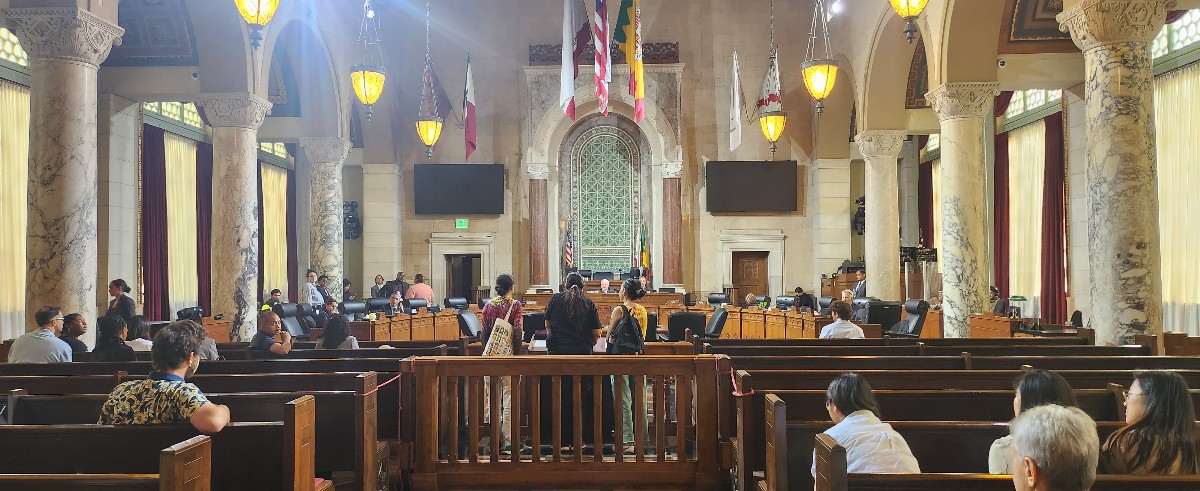
At the LA City Council’s Special-Ad Hoc Committee on City Governance Reform on August 10, major Korean American advocacy groups provided input for the city’s ongoing governance reform efforts, which encompass the expansion of city districts and councilmember seats.
Representatives from the Korean American Federation of Los Angeles (KAFLA), the Koreatown Youth & Community Center (KYCC), the Korean American Coalition (KAC), the Koreatown Immigrant Workers Alliance (KIWA), and the Korean American Family Services (KFAM), along with over 50 citizens from Asian American and Asian Pacific Islander advocacy groups, presented a unified message to the committee regarding the necessity of establishing an independent redistricting commission.
The committee received independent research reports from three nonprofit research organizations.
The LA City Governance Reform Study Group, comprised of college researchers, proposed the establishment of an independent redistricting commission to separate the City of Los Angeles from the Los Angeles Unified School District (LAUSD).
Simultaneously, the study recommended an expansion of the number of council districts from the current 15 to 25–31, thereby reducing the number of residents in a district from the present 260,000–270,000 to 140,000–150,000. This adjustment would bring Los Angeles more in line with cities like New York and Chicago.
“Public opinion consistently supports an increase in the number of districts, regardless of comparisons to other cities,” stated study chair Gary Segura, a professor of public policy at UCLA. “This indicates that citizens are aware of the influence that external interests’ demands and financial influence wield over the City Council.”
Should this proposal gain traction and be adopted by the City Council, it is likely that Koreatown in Los Angeles would be reconfigured as a unified district.
During the meeting, James An, President of KAFLA, Steve Kang, Director of KYCC, and Eunice Song, Executive Director of KAC, addressed the public, urging the community to collaborate in ensuring that Koreatown remains undivided as a district, with representation by a council member.
“The current 15 council members fall short of adequately representing Koreatown’s voices. A dedicated council member is required to advocate for the Korean American community within the city council,” said An. He further emphasized that “the persistence of districts established in 1925 for nearly a century poses an inherent issue.”
“The potential composition of up to 31 districts reflects local sentiment,” Kang commented, asserting that it would facilitate increased interaction between citizens and council members.
“We eagerly anticipate the formation of an independent redistricting committee, impartial to political influences and committed to prioritizing community interests,” said Song.
At the conclusion of the meeting, Council President Paul Krekorian said, “The insights shared in today’s public comments and research presentations will be summarized and reported back to the City Council during the mid-September meeting, marking the commencement of the second phase of this process.”
By Brian Choi [choi.inseong@koreadaily.com]




